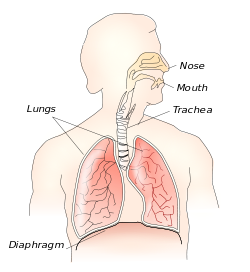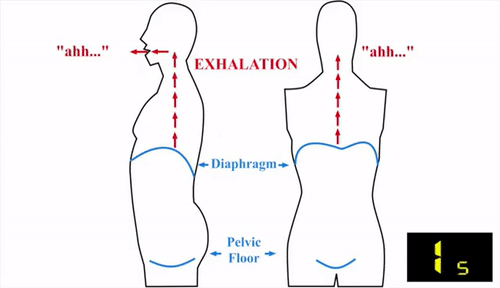Learn the best tips and tricks on how to sing better. Whether you are an experienced singer or a novice trying to be famous, the advices on this article will help you achieve a vocal mastery only the best singers in world are able to reach. With the help of the several exercises we have posted, this will be the start of your vocal growth as a singer. Dont forget that pratice makes perfect. You will have to train your voice until you are able to master it, nothing happens overnight. Dont lose your patience if you are not able perform the exercises at first, just keep praticing. We hope you enjoy this guide on how to be a better singer. This article will attempt to be one of the most comprehensive guide you will find online. We will continue to update it with new content whenever we find something that we think could be missing, if you find there is something that you would like to add then by all means just leave your idea in the comments section. If you are serious about your singing training then you can learn greatly from this article, continue reading …
This Study Is Divided in Two Main Parts:
Theory and General Guidelines
Pratice and Vocal Exercises

Learning how to sing better is easy
Learn How to Be a Better Singer
(Tips and Tricks)
So, you really have a great passion towards singing and want to make singing as your career, but you think you can learn some more and you don’t have any idea about how to improve your vocal skills? probably considering getting a vocal coach? Don’t worry! Rome was not built in a day. You can still become a better singer, if you practice using the proper techniques and train your voice accordingly. First, it’s important to respect the art of singing, as you would approach any profession. Now let’s look at some tips and suggestions that can help you to improve your voice, range, reaching those difficult high notes, and also to improve your confidence to sing better. These basics are essential if you want to learn how to sing correctly and also so that you can avoid any problems with your voice. No personal coaching or online course is complete if you are not taught these basics right from the start.
Complete our Singing Quiz before continuing
Part 1 – Getting the Basics Right

The First step to improve your vocal skill, is to get your basics right when singing, especially if you are just starting out. The following simple steps will be invaluable, as they will really help in keeping your voice in top shape and quality. No skill can be mastered overnight, but with proper practice, regular warmup exercises, avoiding certain food and above all the confidence and the state of the mind, can help you be a perfect singer overtime. Try to understand the basics before going into the exercises. Let’s start learning then…Choose your topic from the list below and start reading, some areas will contain also videos for a better explanation.
Theory and General Guidelines
Develop Your Ear
Improving Your Ear
Ear Training or Pitch Exercises are the terms used to portray methods for instructing and figuring out how to distinguish a note and sing tuned in to the note or harmony that is played. Developing a perfect pitch is another skill for the aspiring singer, which consists on the ability to recognize musical notes by hear.
In the event that you need to figure out how to sing or play an instrument, it is fundamental to have the capacity to sing the right notes in the precise place and at the correct time. In a perfect world a vocalist ought to have the capacity to perceive the key being played ,and sing any of the notes inside the harmony or scale without sounding sharp or flat.
Not like an instrument where you can press a key or a specific mix of keys to make an explicit note, your voice has a lot more extensive scope of adaptability.
Don’t feel bad if you can’t pitch, that doesn’t mean you are Tone Deaf, some people just are born with incredible ears for music, but others need to practice and train until they become proficient at it.
To help with this, the principal singing nuts and bolts step you should ace is focusing on your ear. You have to figure out how to hear the distinction between hitting the note superbly and when you are sharp (over the pitch) or flat(beneath the pitch). Until the point when you can perceive these unpretentious contrasts for yourself, you won’t have the capacity to consummately recreate a tune.
Your private educator will direct you through tuning in and vocal activities until the point when you can see the distinction. A standout amongst the most widely recognized activities to deal with ear training is to tune in to a tone played by an instrument or sung by your educator and keep repeating it until you get it right.
One of the most essential vocal gear for a singer to have is a good tuner. They can be important for ear preparing and checking to tune amid pitch activities and exercises. There are many tuners accessible from stores and on the web, some are best for use with a melodic instrument like a guitar or when used with a mic so be cautious, before buying!
Record Your Singing
Record Yourself Singing
Now that you know you can recognize pitch, it’s simply a matter of training your ear to hear YOURSELF relative to the pitch you should be singing. In my opinion, the easiest (and least boring) way to do this is to simply record yourself singing, and then play it back. The biggest improvements I’ve ever made to my singing in a variety of areas came when I started recording and listening to myself.
IMPORTANT: Never, ever, ever try to record yourself singing a song you don’t already know like the back of your hand. If it’s a relatively new song to you, practice it until it feels like you can sing it without thinking at all. Only once you’ve got the tune down, should you start gauging yourself with recording.
There are good reasons for this piece of advice. If you’ve never listened to yourself sing before, there’s a good chance you’ll be overly critical of yourself on numerous fronts when you do. Everything from “I hate my voice” to “Why did I sing it like that?”
If you aren’t intimately familiar with a song already, you’re going to run into singing issues with the song that you’ll be rid of once you’ve learned it well enough. If you record yourself during this phase, you could end up hearing all manner of extra things wrong with it or that you don’t like, and that can be very discouraging.
I want you to eliminate as much of that as possible before you attempt listening to yourself.
Pitch Matching Training
Pitch Matching Practice
If you don’t feel like recording yourself singing a song is helping at this stage, the most tried and true method for training your ear is through pitch matching. I like to recommend recording yourself singing songs first because pitch matching practice can, quite frankly, be tedious and a lot of not-especially-fun.
I know that doesn’t sound like a ringing endorsement that’s going to make you dart off to the first pitch matching practice with bells on, but it’s a necessary evil if you want to improve your singing. And, it really is the easiest thing to do.
Here’s how this works. You need a piano or keyboard of some kind, or just a simple piano app so you can play a note and echo it back. You can pick any note you want, but I’d start with middle C on the keyboard if you know where that is hehe.
The steps are as follows:
- Play the note a few times
- Get the note in your mind
- Stop playing the note and wait for a second
- Sing the note and hold it
- Play the note again as you’re singing to see if you’re matching it
- Rinse and repeat for different notes
You can build upon this by moving onto scales, and you can take it progressively. So, for example, if start with the C Major scale, sing along with the first 3 notes of the scale until you feel comfortable that you know what the notes are in your mind.
Then try to sing them without the piano, and test yourself in the same manner as steps 4 and 5 above (sing the first note, hold it, play it, sing the second note, hold it, play it, etc.). Once you feel comfortable with 3 notes, move onto 5 notes, and continue until you can sing the whole scale on pitch.
And for the ultimate test of yourself, you can actually record yourself doing this practice and then listen to see if you actually did stay on pitch when you thought you did!
Singing Careers
Make a Career as an Artist
Even if it is one of the most difficult things to accomplish, making a career as a singer still works. Truth be told it tends to be damn diligent work. The challenge can be serious. For every famous singer, there are probably 100 that didn’t make it.
It’s a jungle. And Really You have to ask yourself:
Are you a Lion or a Zebra?
Be that as it may, in the event that you want to pursue singing as a career, it’s an extremely rewarding vocation. Below you will find a general overview of the possible outcomes in your singing career:
- Become a full-time singer in a hotel
- Or in a cruise ship
- You could become a Cover Singer (singing other artists songs)
- Wedding Singer
- Club Singer
- Karaoke Host
- Become a Famous Artist (easier said than done)
- Classical and Music Theatre Singing
- Gospel choirs, modern jazz choirs,
- Opera
- Backup Singer
- Session Singer
- Singing Teacher
The wages and working conditions for vocalists change a lot. While occupations in other music fields, for example, music teaching will, in general, be base on full-time, salaried positions, singing employments will be founded on contracts for individual shows or exhibitions, or for an arrangement of shows.
Wannabe artists and vocalists must have melodic expertise, a phenomenal voice, the capacity to work with individuals, and a feeling of dramatic artistry and dramatization.
Furthermore, artists need the aspiration and drive to persistently examine and improve,
Professional vocalists should always keep on searching for vocal training to sharpen their aptitudes, expand their range, and adopt new styles.
Bad Singing Habits
Get Rid of Bad Singing Habits
At the beginning of your singing journey, in your singing, you should focus on removing bad singing habits. These negative behavior patterns like murmuring and supplanting only set you back, and sometimes you don’t even notice them. On account of murmuring, for instance, you would need to begin moving your mouth more and ensuring you can hear the majority of the words you are singing.
I prescribe taping yourself when you sing and tune in back to hear whether you can make out the majority of the verses or not. In the event that you can’t well, you have to continue taking a shot at getting out from under that murmuring habit.
As a “baby” vocalist, you won’t realize which singing routines you need to improve. That’s when its time to probably find a better than just an average singing instructor, which can help you to become better, and gain consciousness on what you need to work more of your singing practice. They ought to have the capacity to call attention to in the event that you are muttering or slurring up to notes instead to hitting them straight.
Sometimes you can find not so good singing teachers, that will also increase your bad habits. A good pointer is how do you feel when your coach teaches new habits, do they feel natural? This is of extreme importance, always question authority if something doesn’t feel natural for you.
Physical Exercises
Train Your Body
So now I need to go to the gym to be a singer? are you kidding me? Actually we are not, but you don’t need to be in bodybuilding to be a good singer, actually, some exercises like crunches or sit-ups, could be bad for you as these increase the possibility of tension in the neck and shoulders, any kind of aerobic exercise will do wonders for your vocals and also to your physical health as a whole. With this said, walking, tennis, swimming, endurance and light weight training can improve your overall stamina when you are performing.
With the latest trends, everyone feels the urge (or not) to go to the gym, if you are one of these people, just remember to balance your weight training with periods of relaxation. That’s when you should look at other types of training. Examples of this are yoga, Tai Chi, Qigong, as these types of meditation training help you to connect with your inner self, and become more aware of your surroundings, and more importantly, your body.
Posture
Correct Posture
One of the basics of singing that you will need to learn is good posture and proper breathing support. Strict observance of these two factors will enable you to produce the finest tones from your voice. The best posture for singing is similar to that of a soldier standing at attention, but not as rigid. Posture is a very important aspect of singing. Always make sure you maintain a proper posture while singing, whether you are standing or sitting.
Pro Tips
- You shouldn’t tilt your body to either of the sides but should keep it straight
- You stand erect but with the body relaxed and with feet apart a hip-width distance
- Put your body weight forward, by keeping your legs apart, by placing one foot slightly forward from the other
- Keep your hands relaxed, your shoulders should be kept back and make sure your chest is up and out and your chin should be held straight and parallel to the floor
Whenever someone asks how to sing better, one of the first things to focus is a correct posture.
Healthy LifeStyle
Enjoy a Healthy Lifestyle
A lot of people harbor the wrong belief that everyone knows how to sing. All that is needed is to open one’s mouth and belt out a song. Nothing can be further from the truth. A trip to a karaoke bar will show you that many wannabe singers can’t sing on key or with a rhythm. Others who do show potential are using their voices in unhealthy ways which may prove damaging in the long run. For any singer, whether they are doing it professional or just for fun, there are two very important singing goals that they should observe, namely:
- That their voices sound good.
- That they should know how to preserve it so that it lasts for their entire lives.
When it comes to voice preservation, no singer can go wrong by following a healthy lifestyle. To have good health and be physically fit, they should eat a nutritious diet, exercise regularly, and get the right amounts of sleep. Nothing can be more damaging to the voice than smoking, drug abuse, and excessive alcohol consumption. You have probably seen a lot of rock stars who love to party hard. But singers who have enjoyed longevity in their careers have shunned the deadly vices that brought an untimely end to such legends as Elvis Presley, Jim Morrison, and Janis Joplin. Instead, they lived very healthy lives and cared for their voices, so that they continue to be loved by their adoring fans even up to the present time.
No Smoking
Quit Smoking

If you want to really improve your singing quality and become a singing idol, smoking could be killing your natural talent. It’s not just about that it’s bad for your health, but it can cause irreparable damages to your throat and lungs over time when it is constantly exposed to the chemical particles in the smoke. The thing with smoking is that the sooner you put the cigars away, the less harm is done and the greater part of the harm fixes itself.
Several famous artists smoked and they were all singing great ever after over 4 years smoking. But there have been singers who ended their career sooner because of smoking. If you are a frequent smoker, then just consider giving up the bad habit, is not good for your lungs, throat and gives you nothing good in return. Smoking and singing are not a match.
Speaking
Use Your Speaking Time
Singing is really a continuation of the speech. Singing will come naturally and your singing voice can improve dramatically if you try to sing as naturally while you try and speak. You should know that talking for long lengths of time without properly regulating your voice can lead to you losing your voice – well the same for singing. You need to know the way to stick to the natural laws of utilizing your voice then when you need to do, singing can be easy.
You can practice your singing, when while you are speaking. With practice and attention, you can definitely cultivate a speaking voice that not only supports your voice but also helps to enhance your singing quality as well. Speaking and singing are almost similar, as while speaking, you do the same way of letting the air in and out of your throat. We talk every time, and we can use that as an exercise to experiment on how our local chords sound when we shout and speak slowly.
Vocal Coach
Get a Vocal Coach
There are quite a lot of people who have the god gifted ability to sing well because they have been endowed with a rich and melodious voice. For the others who are interested to make it big in the singing profession, or just want to improve their voice quality, training and regular practice could be a way forward. Singing is a tough art and even for those gifted with natural singing talents, a lot of practice and devotion is called for. The whole practice has to be started from the initial stages and each and every aspiring singer has to keep this mind if they want to improve over a period of time. Even in our education, we cannot move straightway to grade VII just at the age of 4 or 5. The same applies to singing also and a step by step is the only way forward. As a budding and aspiring singer, the first thing that we need to do is to identify and take the services of a good music and singing teacher. There are many music schools and colleges which provide very good and effective lessons and training schedules for such beginners.
You can’t do everything alone. If you want to improve your singing quickly, then hiring a vocal coach is the best way to achieve that, private lessons can go along way when you really want to get better. When you practice for yourself, you won’t sometimes notice the mistakes you make, as you can’t hear yourself, unless you record it and hear it. Even if you record and hear later, you can’t always detect the mistakes an experienced vocal teacher would spot in seconds. A vocal coach will also make you understand all the mistakes you do with your posture, breathing and also will suggest you follow simpler techniques.
Those who would like to go a step forward can also look into the possibility of hiring a private tutor who can come teach in the comfort of the home. Having identified a good teacher the next important thing is to develop a natural voice that is original. Never make the mistake of copying some other singer because by doing so you would be spoiling your own natural voice and would be falling behind in your singing skills by trying to imitate another singer.
Online Lessons
Online Singing Courses
However, because singing lessons can be very expensive, you can get the training you need through online singing courses. No matter what form of training you prefer, you will be taught the anatomy of your vocal apparatus, how it works, and how to use it properly. These basics are essential if you want to learn how to sing correctly and also so that you can avoid any problems with your voice. No personal coaching or online course is complete if you are not taught these basics right from the start.
In the world of online singing lessons, there are two basic options. The first is a package. This may include multiple lessons that can be completed in a sequence. There may be additional support available as forums. There are also do-it-yourself packages available. Each of these has its unique merit. One thing is central to both sorts though. They both incorporate some form of software that you can use to improve your singing. There are some definite components that you should consider when searching for the product which you choose.
Singing Quietly
Sing Quietly
Try to sing quietly, unless you are learning a particular style of song that needs you to shout. Singing in a low pitch voice initially will help you maintain control over your voice. You can feel the difference of how much intensity you can produce when you sing quietly in a lower volume and also it helps to focus on your technique.
Grounding
Ground Yourself
While singing a song with high pitched notes, your body will automatically tend to move upwards, when you are reaching for the high notes. But it is not advisable to move your body upwards, as when you put your weight downwards, you’ll get a more stabilized feeling and will allow you to hit your high notes easily and effectively.
Learn From The Pros

Christina Aguilera Concert
Watch Professional singers
When you listen to professional singers, you can see the way they control their breathing, volume, posture, and resonance. Try to replicate it, if you really like the style. It is no wrong to replicate someone’s style, while at the beginning of your career. The reason to replicate is, that would make you do things differently, which you won’t do normally.
Vocal Gear
Use a Microphone
While singing, you would frequently use a microphone, so learning to sing using a microphone is important. Make sure to get used to holding a microphone and sing with it comfortably. Also, don’t buy those cheap ones, but buy a good quality microphone, as the cheaper ones, won’t resonate your voice clearly and effectively.
Record and Learn
Along with a microphone, a good set of speakers will help you listen to your voice, to notice the subtle mistakes you make while shifting from the higher to lower notes, breathing issues, etc. Sometimes it also helps to hear live feedback while you are singing, to adapt and correct the mistakes quickly.
Diaphragm Breathing
Breathe from Your Diaphragm

Diaphragm
Many people may not know the fact that the diaphragm plays a very important role if you want to improve your vocal skills. Had your voice been something like that of a computer, you could have easily made some small adjustments by using the mouse or by entering a few keyboard strokes. But singing is not that easy and it requires learning to control your voice from within, by effective use of some muscles. The diaphragm is a complex set of muscles that is connected to the lowest ribs. Apart from being connected to the ribs the diaphragm, it is also connected to the back, top lumbar region, and the sternum. The primary function of the diaphragm is to facilitate inhaling. Though not directly involved in the function of exhaling, the diaphragm does control the muscles and aids in rapid exhalation of your breath. Exhalation is controlled by the abdominal muscles and system surrounding it which extends from the abdomen to the pelvis.
Below is a 4 Part video on how to sing using your diaphragm
To be a good singer, apart from having a good voice, where the function of the larynx is very crucial, controlling your breath is also very important and to this effect the importance of diaphragm muscles cannot be understated. However, this indeed is a tough job and it takes a lot of time and effort to train on breath controlling. Having a good voice with a strong larynx and a sound amplifier is just one part of the story as far as the need to improve your singing voice is concerned. Unless you are able to control and bring into full play the role of the diaphragm in singing, you would not be reaching the desired levels of success.

Proper breathing is also one of the most important things while singing. Try not to breathe from your chest, but from your diaphragm, so that your abdomen expands and not your chest while breathing. One of the secrets to maintaining a good scale is learning to control your voice with the diaphragm. For example, while singing a note on an increased scale, you need to push down the diaphragm and release it, while on the down scale.
Let’s Practice:
1 First, keep your hand in your stomach and slowly inhale through your nose.
2 And while you breathe in and breathe out, your abdomen only should expand and contract respectively, and not your chest. It should be like doing a sit-up exercise.
3 Practice it daily until it becomes natural while you are singing.
Vocal Range
Increase your Vocal Range
Before you try to increase your vocal range, you need to know what it is all about and how to find it. The Vocal range is the level your voice can reach to the highest or lowest notes. And this is largely dependent on the individuals vocal cords. Michael Jackson had an extraordinary range of about 4 octaves. There are basically 7 kinds of voice types, namely Soprano, Mezzo-Soprano, Alto, Countertenor, Tenor, Baritone and Bass. Increasing or extending your vocal range doesn’t mean reaching outside your vocal range, but strengthening your voice when you reach the low and high levels of your vocal range.
Below is a video on how to increase your vocal range with simple exercises
Let’s Practice:
1Make sure you are doing good at the vowels exercise before coming here
2Don’t rush but do it just half or one step at a time
3First practice by using short scales and make sure you get the new note correctly, before reaching the lowest or highest level
4One better way is to seek the help of a vocal coach, for a faster and effective way to increase your vocal range
Songwriting
Get Into Songwriting
Let’s face it, learning something new is not easy, and singing is really not easy. So you might be wondering if songwriting is easy or not.
You may feel frustrated somewhere within the songwriting process, but the nice thing about it is you may already be making good melodies, chord progressions and lyrics. You already have the best components in place — your trouble lies in putting them all together. Coming up with a nice theme to get a song doesn’t mean that you’re on the right track.
One of the things a large number of songwriters find helpful is usually to document the random thoughts they have got throughout the day. Some writers will carry a book or notepad together while some prefer a small mini-recorder. They will take note of or sing whatever catches their attention, including aspects of new melodies, choruses, or verses. In addition, you may think of the really clever phrase or title. You never know where you will be if the spark for the new song will pop in your head, so be equipped for it.
The most common method to name a song is usually to have a phrase or word in the song that repeats and make use of that for the title. In other words, choose the “obvious” title. This has the main advantage of being memorable, and there are experts who say that this can be a better method to go if you want to write hits. There are obvious benefits to creating a title that listeners can guess when they hear the song for the radio or at a concert or party. That being said, I seldom try this. I find it far more fun to produce the title affect the meaning of the song somehow. If your lyrics are memorable, that’s adequate, for me.
When you’re first learning how to write a song, it is vital that you learn a lot of songs from your favorite artists. Learn their guitar tabs and lyrics and sheet music and other things that are you may get your hands on. The more you do this, the better. Imitation is super powerful as it’s fun and also at the same time helps you absorb many musical principles directly through the music, in lieu of learning them tediously without any context.
When you decide to sit down and write your individual song, you’ll benefit a great deal by looking for a nice place where one can be with your ideas alone. You should not be disturbed at all. Scribe whatever that comes in your mind when you can organize and edit it later. And you’d have good material to churn out memorable rock songs.
Drink Water

Drinking Water is Good for your health
Drink Enough Water
Drinking water is always a good habit, not only to improve your singing qualities but basically good for your health. In regards to singing, water can be of very much help in determining how good your vocal chord is maintained. Your vocal cords can be easier to open and close, if it is kept moist and cool, by drinking enough water. Try to drink at least 8 glasses of water every day, this way you keep your vocal instrument always hydrated. You can also try any other drink, that is de-caffeinated and non-alcoholic to the same effect, but why waste your money, when you get everything from the water. Also avoid cold drinks, as they can tense your muscles. Slightly warm water is always best for your throat. Make sure to drink at least eight to ten glasses of water every day for having your voice function clearly and also keep it moist and lubricated. A lot of people have a question of how to get a better singing voice, without knowing that it starts with drinking plenty of water.
Your Voice Areas
Know your Voice areas
Everyone’s voice is made up of three areas namely, the Head register, the chest, and the middle register. The range of notes that can be sung from that particular section of the body, is referred to as the voice area. Your voice resonance changes when you move across these areas. And if you learn to control the transition, then your singing quality will improve to a larger extent.
Head Voice:
This is the higher area, where, it will vibrate in your head, when you sing those high notes.
Chest Voice:
This is the lower area of your voice, where it will vibrate in your chest, while singing the lower notes.
Middle Voice:
The middle area between your head and the chest, where the transition takes place from higher notes to lower notes.
When you go from a higher to a lower note, make sure you always shift to the proper voice area, or it will certainly affect your singing quality.

Going Deep Into Your Voice
Part 2 – Exercise Your Voice
Once you’ve mastered the basics, it’s time to improve your voice quality through various exercises.
Warmup
The Importance Of Warming Up Your Voice
Warming your voice up is one of the most important steps to an incredible execution performing. Odds are that the first time you pick up the mic your voice isn’t exactly at 100%. A concise vocal warm up can help slacken up the ropes and prepare yourself for the tryouts and challenges in front of you by experiencing your range and “enacting” or “awakening” the diverse parts of your voice. The Warmups can likewise help limit the event of mistakes mouth commotion, and voice cracks
The most essential part of the day for you to start your warmup sessions is during the morning. The vast majority of people require a short time for their voice to be at its maximum capacity after they get up in the morning. Creating a vocal warm-up routine for your morning schedule is an extraordinary method to make the best out of the day.
Another great time to heat up is straightforwardly before any live sessions. Experiencing a snappy warm up routine before live sessions is an extraordinary method to plan and guarantee the session runs easily and you leave everyone happy.
You dont need to bother with an extremely extensive vocal warm-ups routine to improve your voice, consider it as a new habit you are learning. Likely 10-20 minutes is sufficient to become a better singer and awaken your range. Make an everyday practice for yourself that incorporates practices you feel are the most difficult for you and stick to performing it once a day. See which practices feel good and which don’t and make your own tweaked daily practice.
Lip Trills
Practice Lip Trills
Lip trilling is an exercise, where you use your lips to blow air through it. And by blowing air, your lips will tend to vibrate and flap with a brrrrr sound. Your lips won’t vibrate if it’s tense. So try to relax and then do the exercise again. Or else, you can use your hands to pull your mouth, while doing the exercise. Also, practicing tongue trills will help you to relax them while singing.
How Does It Sound:
Video with a Lip Thrill Exercise
Tongue Thrills
Practice Tongue Thrills
Tongue Trills are like Lip Rolls, the main difference is that the vibration is in your tongue as opposed to your lips and is another extraordinary method to travel through your range while initiating an alternate reverberation in your voice.
The most effective method to Perform:
Begin with your mouth in a calm position, somewhat open and deliver either a “D” or a “G” sound, whichever feels more relaxed to you. Keep a steady breath stream and feel the tip of your tongue vibrating against the top of your mouth. Once more, begin a solitary pitch and once you are good, travel through your range on the activity. Try not to stress much over going very high or too low with it, center more around the vocal technique.
How Does It Sound:
Video with a Tongue Thrill Exercise
Mmm Sound
The “M” Sound Exercise
The “M” sound is a good method to stimulate reverberation in the front of your mouth and face and you should feel vibration here as you perform it.
The most effective Way to Perform it :
Basically, make an “M” sound with a shut mouth and utilize a steady breath stream to keep the sound full and reliable, without extreme changes in volume or force. Hold the sound for a couple of moments on a single pitch and after that just move in your range with it.
How Does It Sound:
Video with an “M” Sound Exercise
Nnn Sound
The “N” Sound Exercise
The “N” Sound like the “M” sound exercise also activates some reverberation in the front of your face, yet moves it marginally higher than the “M” sound and into the nose territory.
Step by step instructions to Perform:
Keeping your mouth shut and in a relaxed position, create a steady “N” sound and travel through your range while keeping it reliable in power and volume. You may feel your tongue delicately touching the top of your mouth.
How Does It Sound:
Lll Sound
The “L” Sound Exercise
The “L” sound stimulates some reverberation somewhat further back in your head and throat region than the past “M” and “N” sound and you should feel the vibration here as you perform it.
Instructions to Perform:
Enable your tongue to tenderly press against the back of your upper teeth and your mouth to an inch open. Create an “L” sound with steady volume and power and travel through your range with it.
How Does It Sound:
Zzz Sound
The “Z” Sound Exercise
The “Z” sound is another great one to activate reverberation in the front of your mouth and face with a more open sound than the past vocal warmup exercises.
The most effective way to Perform it:
With your teeth shut (yet not gripped) and your mouth slightly open, deliver a steady “Z” sound, again keeping volume and force reliable all through. Begin a single relaxed pitch, moving through your range.
How Does It Sound:
NG Sound
The “NG” Sound Exercise
This is another famous one with vocalists that you might be comfortable with. The “NG” sound is an extraordinary method to stimulate your nasal reverberation and you should feel the vibration in your nose and sinus region when singing out this one.
Step by step instructions to Perform:
The fundamental sound to concentrate on is the “NG” – you can use a wide range of vowel sounds before it and perform either “Uung” or “Ung”, “ahng”, or “aang”. Begin with the vowel sound that you pick and let it transform into the “NG” sound, once the “NG” sound is stable, keep it powerful and go through your range, like always.
For a more visual explanation please watch the training video.
How Does It Sound:
Video with a “NG” Sound Exercise
Train How to Belt
Belting
Belting is the “high” in the singing system that delivers a high-force, enormous, amazing, noisy vocal sound. Belted singing can be found in every single contemporary types and styles of singing, including jazz, society, pop and shake, in spite of the fact that it is most regularly connected with melodic theater. Be that as it may, not all artists of these classifications belt when performing or recording.
West End on-screen characters, Gospel divas, and Rock artists use belting to raise the execution and offer voice to the most grounded feelings. It’s an energizing, sensational, boisterous sound that depends on a chest voice vibration: the vocal folds are vibrating with a thick surface and a firm, quick conclusion that requires solid subglottal pneumatic stress however very little stream.
Learn in the Video Below How To Belt
Exercise your Vocals Regularly
Practice Your Exercises Regularly
Practicing your vocal warm-up exercises regularly is very important in improving your singing quality. Commitment is the key, as doing the exercise one or two days in a week, won’t do any good. These exercises should be done every single day without fail, to strengthen your vocal chords and to enhance your voice. Like how warm up before doing a physical exercise to your body is important, warm is important before doing any vocal exercises too.
Pratice Scales
Scale Singing
This is a great exercise to warm up your voice and educate yourself on the basics in scale that are very essential to keep you within the right pitch while singing. The Major Scale is extremely common, as everyone knows the basic principles of Doh Re Mi Fa Sol La Ti. The Doh is added inside the highest octave in continuance of the Ti scale. Always start while using lowest note before exercising on your path to the very best scale. The most ideal for guys is always to begin in B majorcords, while A flat major scale for the female counterpart. The reasonable explanation will be the adjustment of vocal cords as well as to regulate for lower tension before it can be stretched out to get a higher scale.
Checkout this video with The 5 Note Scale Exercise
The Importance of Vowels
Take Care of Your Vowels
One more important thing to note is the use of vowels and consonants while singing. The reason that it is important to master this because, the music is inclined to the vowel sounds of each word in your lyrics, and if you get the sound wrong, then your voice and the music will not be in sync. By practicing the open throat technique, you can open your vowels much better.
Let’s Practice:
1Now try saying the vowels one by one A-E-I-O-U
2Now when you say this, the jaw shouldn’t close, and keep practicing this, until you can keep your jaw down
3Next, instead of saying, start singing the vowels by keeping the jaw open as earlier
Heres another training Video with warm up vowels exercises to train your voice
Silence is Important
Practice Silence
When you are singing or speaking for a long time, you may tend to notice, that your voice starting to get rough. So it is good to give some rest to your voice. Giving rest to your voice, will also be able to strengthen your singing stamina. Many great singers and performers give ample rest to their voice, as they won’t be uttering a word the whole day or speak less. This enables them to develop a stronger stamina to sing for longer periods in concerts.
Get Some Sleep
Maintain a Good Sleeping Routine
Maintaining a good sleep routine is not important for your voice, but important for your overall body. Only during your sleep at night, the body works to heal all your damages which you’ve done throughout the day. And if we don’t give the body enough sleep, this process of healing is disturbed. Also, when you go through your singing exercises, your muscle fibers tend to grow and adapt to the new exercises. And only during your sleep at night, that these new muscle fiber changes get integrated with your body.
Final Thoughts
Conclusion
Singing is an art, which cannot be mastered overnight, but with practice and confidence along with a good state of mind, you can definitely cultivate a very good voice and become a much better singer. Hope you have enjoyed this article, that it has been helpful, and you have found the information you were looking for. If you liked it, dont forget to share it with your friends. Keep Praticing your vocal cords until you become an expert singer.

Hi
Buy all styles of Oakley & Ray Ban Sunglasses only 19.95 dollars. If interested, please visit our site: supersunglasses.online
Enjoy,
The Ultimate Guide On How To Be a better Singer – howtobeabettersinger.net